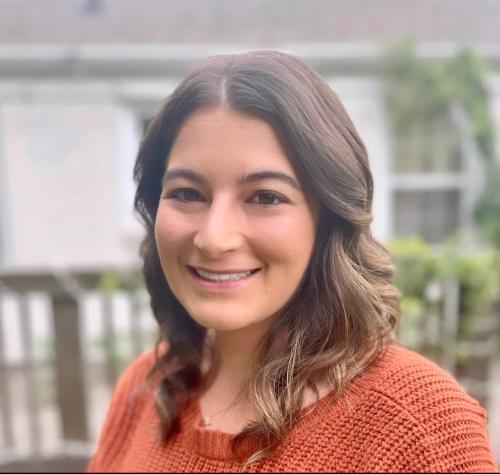 |

|
 |
Dr. Kelsea Best, Assistant Professor, Ohio State University. |
|
Climate-driven increases in the frequency of hurricanes may be contributing to the affordable housing crisis in the United States, according to a newly-released study led by former University of Maryland (UMD) post-doctoral researcher Kelsea Best, now an assistant professor at Ohio State University.
Best, together with former UMD post-doctoral researcher Qian He (now an assistant professor at Rowan University), UMD undergraduate Nhi Tran, UMD Associate Professor Allison Reilly, and UMD Clark Distinguished Chair Deb Niemeier, published her work this fall in the journal Risk Analysis.
They found that rental prices tend to increase in the aftermath of a hurricane, in part because the damage and destruction decreases the supply of units. Renters not only see their housing options diminish, but lack access to disaster relief that is available to homeowners, including cash grants and compensation for lost property.
And with hurricanes on the rise due to climate changea changing climate, the disparities will likely become more acute.
“We have this really severe shortage of affordable, safe rental housing and these effects of climate change and climate-related disasters are just going to become more frequent and intense,” Best said in comments to Grist, which reported on the study.
UMD’s Reilly said the paper further demonstrates the equity implications of climate-induced disaster risk.
“This research really contributes to the growing body of evidence that we need sweeping climate policy that considers how climate disasters are affecting the most vulnerable in our country,” she said. “Climate legislation can’t stop at clean power generation and transportation. It must also consider how climate affects housing, health, and other basic human needs.”
Renters face a number of vulnerabilities that can exacerbate the impact of hurricanes and other disasters, Best noted. Rental units tend to be older than other types of structures; construction is often less robust, and maintenance may be substandard. Compared to homeowners, renters are more likely to belong to a lower income bracket or a disadvantaged racial group, with redlining and other forms of structural racism playing an insidious role. As a result, they are strongly impacted by fluctuations in rent. The combination of variables can trigger a vicious cycle, in which already cash-strapped renters endure further losses as a result of a hurricane, and then lose access to housing as the rents rise.
’To measure the impacts, Best and her colleagues assembled data on hurricane disasters, housing, and socio-economic status from counties in 19 coastal states, over a time period spanning 2009-2018. Using a regression analysis, the researchers were able to track changes in median rent and housing affordability that correspond to hurricane events in the counties studied.
Paper recommendations include retooling federal, state, and local policies to better protect renters–for example, through eviction moratoria–and improving access to emergency assistance.
Related Articles:
Niemeier Named Center for Disaster Resilience Director
Allison Reilly Wins NSF CAREER Award
Galloway: Nature-Based Features Can Aid in Disaster Resilience
Galloway: Midwestern floods part of a global problem
Galloway named a 2018 Top 25 Newsmaker
Nationwide Urban Flooding Disrupts Local Economies, Public Safety, and Housing Equity
What Does a Pair of Dice Have to Do With Disaster Recovery?
UMD Resilience Experts Awarded NSF Grant to Accelerate Disaster Recovery
UMD Resilience Experts Host Project Management Training for Disaster Responders
Ayyub Named One of ENR's 2017 Top 25 Newsmakers
December 13, 2023
|

